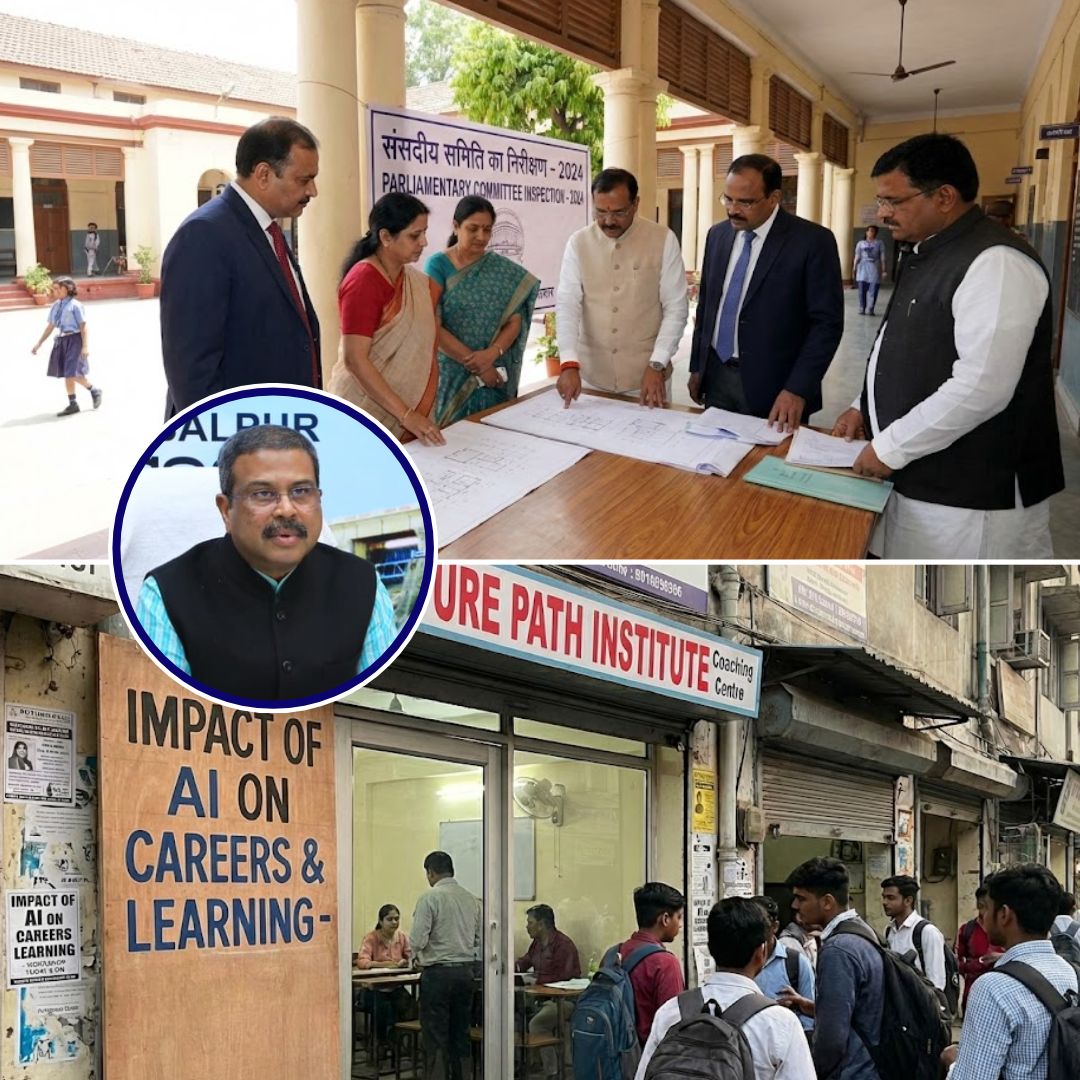The parliamentary standing committee on Education, Women, Children, Youth, and Sports is set to comprehensively review major educational issues for the 2025-26 period, including the rapid growth of coaching centres, the role of artificial intelligence (AI) in education, and key school-level policies such as the Pradhan Mantri Schools for Rising India (PM SHRI) scheme and Samagra Shiksha Abhiyan (SSA).
Alongside, it will address concerns about school closures, the functioning of the National Council of Educational Research and Training (NCERT), and the government’s push to establish the Higher Education Council of India (HECI) to replace existing regulatory bodies.
These efforts follow rising alarm over student stress and suicides linked to coaching culture and exam pressure. Officials from the Ministry of Education have emphasised AI integration, teacher training, and infrastructure development in model schools to modernise and equalise education nationwide.
Coaching Centres and Student Well-being Under Scrutiny
The mushrooming of coaching centres, especially in exam hubs like Kota, Rajasthan, has sparked parliamentary concern due to its association with mounting student stress and mental health issues, including suicides. The standing committee aims to examine the scale of these centres, their social implications, and the adequacy of existing laws regulating them.
Earlier this year, a government-appointed panel was formed to investigate the rise of ‘dummy schools’ and the fairness of competitive entrance exams, reflecting the growing focus on the link between the mainstream education system and the parallel coaching industry.
With a 31-member panel led by Congress MP Digvijaya Singh, the committee is delving deeply into these topics to propose balanced reforms that protect student welfare without undermining academic support systems.
Harnessing Artificial Intelligence
The impact of AI on teaching and learning processes is another focal point. The government is actively investing in AI integration, such as training over a million teachers in AI fundamentals and establishing Centres of Excellence backed by a Rs 500 crore fund earmarked in the 2025 Union Budget.
AI is envisioned to enhance personalised, skill-based learning, assist continuous student assessment, and modernise pedagogy. Parallelly, the PM SHRI scheme, launched in 2022, seeks to transform 14,500 government schools into model institutions aligned with the National Education Policy 2020.
These schools are receiving infrastructure upgrades including smart classrooms, Atal Tinkering Labs, digital libraries, and vocational training centres. Over 12,000 schools have been selected across 670 districts with an emphasis on equity, community engagement, and sustainability, underscoring the government’s commitment to quality education bolster.
Broader Educational Policies and Systemic Reviews
The parliamentary committee’s agenda also includes reviewing SSA, the mid-day meal scheme PM POSHAN, school closure policies, and measures for inclusive education such as support for children with disabilities. It will assess NCERT’s performance in curriculum development and textbook revisions, with a view toward enhancing institutional autonomy.
In higher education, the committee will monitor the proposed Higher Education Council of India bill, aimed at consolidating regulation by replacing bodies like UGC, AICTE, and NCTE. The panel will also explore ways to promote education for linguistic and religious minorities and the strengthening of mental health support in higher education environments.
These holistic reviews reflect an ongoing commitment to reform an evolving education landscape amid technological disruptions and societal needs.
The Logical Indian’s Perspective
The Logical Indian views this parliamentary review as a critical opportunity to reshape Indian education with empathy, equity, and innovation at its core. Addressing the coaching culture requires sensitivity to student stress while offering supportive alternatives.
Embracing AI must prioritize human dignity and teacher empowerment, ensuring that technology complements rather than complicates learning.
The PM SHRI scheme’s holistic upgrades should encourage nurturing environments and community bonding, crucial for harmonious growth. As education reforms unfold, it is essential to foster constructive dialogue among students, educators, parents, and policymakers.











